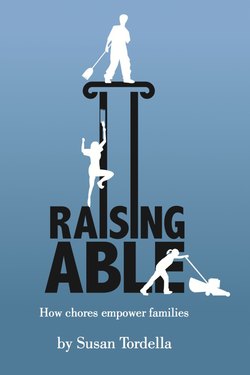Читать книгу Raising Able - Susan Tordella - Страница 19
На сайте Литреса книга снята с продажи.
What kind of parent are you?
ОглавлениеParents typically either set too many limits, or too few. The trend in the new millennium is towards over-protection and befriending children. Strive to set fair limits and share power in a democratic home.
Here are four types of parents.
Democratic – parents and children have rights and responsibilities, with the parents as the leaders. Parents encourage age-appropriate independence and foster responsibility through family meetings, chores, the use of natural and logical consequences, and encouragement. This approach can develop resilient and responsible youths with healthy self-esteem.
Permissive – parents grant children rights and freedom without responsibility, possibly by sacrificing parental rights. Parents have difficulty saying “no” to children, which can create entitlement and self-excess-teem (exaggerated self-confidence). These children could be: given too much power in the family; left on their own to navigate; or spend the majority of time under the care of others. Parents may feel guilty and indulge their children.
Overprotective – also known as helicopter parenting. Parents attempt to shield children from life by constantly intruding in the children’s domain. Overprotective parents may show pity; give tacit permission for the child’s lack of self-control; hold the child to lesser standards and hesitate to set limits. Some parents of children with special needs may use a diagnosis to justify over-involvement. Overprotection can create entitlement, set up a lifelong expectation of special treatment, and infantilize the youth.
Authoritarian – parents rule by domination, “father knows best” and corporal punishment. Typically, fathers have all of the rights and responsibilities. The children and mother must obey, without question or input, or face physical punishment, intimidation and/or verbal abuse. This approach can develop bullies and rebellious children and teens.
